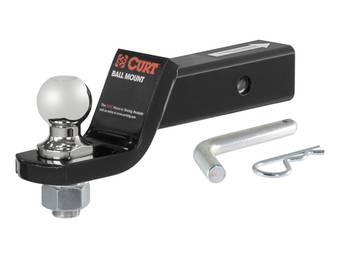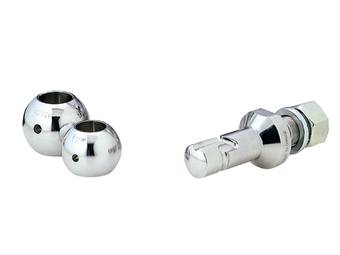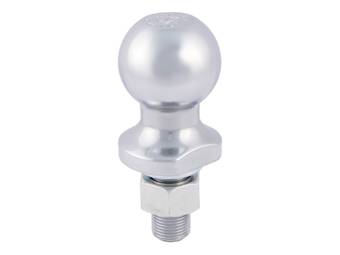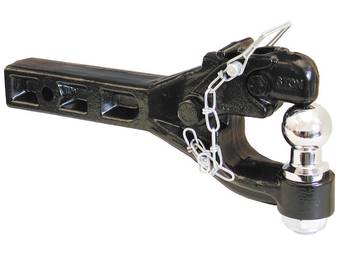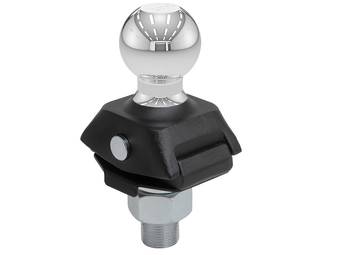Free Shipping on Orders Over $100
2020 Jeep Gladiator Hitch Balls for Towing
Hitch Balls for Towing
When setting up your pickup to tow, you’ll need various tools and accessories to connect your pickup to the trailer; these include the receiver hitch, ball mount, and a hitch ball. Hitch balls are the components that physically secure your pickup to the trailer; it’s the intermediary between the ball mount and the trailer’s coupler, located at the forward-most end of the tongue for tow-behind trailers and below the forward-most, elevated portion of the cabin for 5th wheels.
Hitch balls serve two primary purposes: first, they engage with the trailer’s coupler for a secure connection, and second, they allow the trailer to move and pivot independently of your pickup, significantly aiding maneuverability.
Hitch balls are manufactured from rugged steel treated with smooth, corrosion-resistant chrome plating for fluid movement in the trailer’s coupler and superior rust prevention. Hitch balls generally last indefinitely; however, when the chrome plating wears off or the hitch ball incurs excessive wear/damage, it’s time for a replacement.
Selecting a Hitch Ball
When selecting a hitch ball for your pickup, you’ll need to consider a few variables to ensure proper compatibility. These include:
Ball Size: Hitch balls come in multiple sizes, with the most popular being 1-7/8, 2, 2-5/16, and 3 inches. Typically, the larger the ball, the heavier duty the application.
Shank Size: Ball size isn’t the only measurement that changes, shank size is also an alternating variable, ranging from ¾ to 2 inches in diameter! Like ball size, shank size is directly proportional to the demands of your application.
Solid or Interchangeable: Most hitch balls are manufactured from a single piece of steel; however, that isn’t always the case. Some brands produce hitch balls with a stationary shank and interchangeable balls, allowing you to quickly change between hitch ball sizes without replacing entire ball mounts or unbolting the shank.
Single or Dual: While most hitch balls feature a single ball with a shanked end, others are double-sided, featuring two different sizes to tow multiple trailers without replacing the ball mount.
Ball-Mount or Gooseneck: There are different hitch balls for different applications; two of the most common are ball-mount designs for conventional hitch receivers and gooseneck hitch balls.
Puck-Compatibility: Gooseneck hitch balls come in several systems; however, one of the most convenient is the puck-compatible. These hitch balls drop directly into your pickup’s OEM puck system in the bed, alleviating the need to install an aftermarket gooseneck hitch.
Top Hitch Ball Brands
While several companies manufacture hitch balls, the most popular are:
B&W
Curt
Buyers
Blue Ox
Trimax
Weigh Safe
All of the aforementioned manufacturers are renowned for producing high-quality hitches and towing accessories, ensuring a safe and secure trip with a trailer on the hitch!
